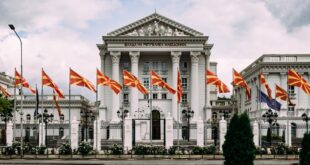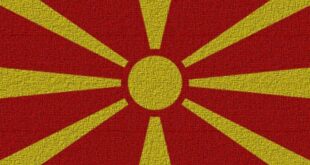If a solution to the Athens-Skopje name spat is not found soon, Macedonia’s EU and NATO integration could be delayed for a longer period, Macedonian opposition leader Branko Crvenkovski said in an interview on Sunday.
Crvenkovski urged the government of Prime Minister Nikola Gruevski not to run away from a solution to the name row.
It is becoming clear that Macedonia will not get the desired date for start of its EU accession talks at the June EU summit, Crvenkovski, the head of the Social Democrats, SDSM, said. He argued that there is simply not enough time for a solution to be found by June 17, when the summit kicks off.
In an interview with Radio Free Europe he warned that the same thing might happen in November with the country’s invitation to join NATO.
“Macedonia runs the whole process in an extremely non-transparent way,” Crvenkovski said. “Not only the public and the opposition, but even the government as an institution has not been informed about what is happening in the negotiations.”
Crvenkovski avoided answering whether the opposition would accept the name ‘Republic of Northern Macedonia’, which has been circulating as a possible compromise name, saying that a rushed statement could harm the ongoing name talks.
Prime Minister Gruevski recently issued a statement that suggests he is not ready to accept the ‘Republic of Northern Macedonia’ proposal. He said his government would agree to “a solution which is acceptable to the citizens, and which makes no damage to the state and national interests”, but was not specific about what that compromise might contain.
Athens and Skopje are locked in a nearly two decade long spat over the use of the name Macedonia. Athens insists that Skopje’s official name, the Republic of Macedonia, implies territorial claims against its own northern province, which is also called Macedonia.
In 2008 Greece blocked Macedonia’s NATO invitation over the spat. Last autumn Athens did the same thing with Macedonia’s start date for EU accession talks.
Since then EU countries have been pushing for a swift resolution within the frameworks of the UN bilateral name talks. The June EU summit was seen as an informal deadline for reaching a compromise, after which the EU countries would be able to extend a start date for accession negotiations.
 Eurasia Press & News
Eurasia Press & News



